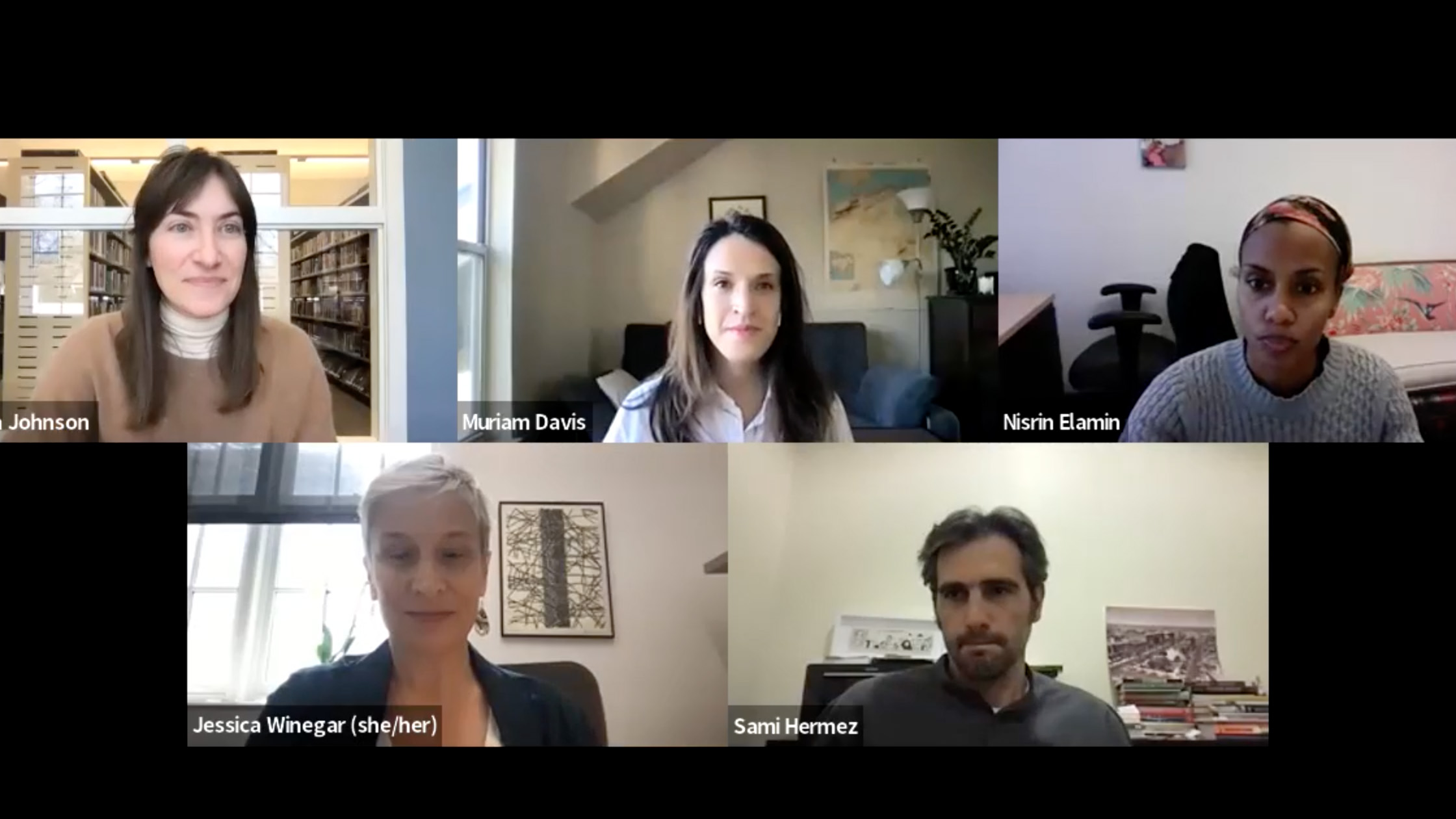The Middle East and North African Studies program (MENA) at Northwestern University hosted a webinar – The Uprisings Since the Uprisings: Algeria, Lebanon, Sudan – featuring Northwestern Qatar Professor Sami Hermez. He joined Muriam Haleh Davis, assistant professor of history at the University of California, Santa Cruz, and Nisrin Elamin, assistant professor of international studies at Bryn Mawr College in examining the ideological and geopolitical workings of the latest wave of popular uprisings in Algeria, Sudan, and Lebanon.
This webinar was part of the MENA Conversations series. The event focused on popular protest movements in the MENA region that have taken shape since the Arab uprisings of 2010-2011, in particular in Algeria, Lebanon, and Sudan.
In explaining the context of the latest uprising in Lebanon, Hermez, director of the Liberal Arts program, noted this should be examined as an extension of a decades-long struggle against political sectarianism, government mismanagement, and corruption. “The Lebanese have been protesting as long as there has been a Lebanon,” said Hermez, arguing that this is just the latest episode.
Hermez, who researches the everyday life of political violence in Lebanon and is the author of War Is Coming: Between Past and Future Violence in Lebanon, also pointed to the uprising’s lack of a clear vision and its leaderless hierarchy as preventing people’s hopes for meaningful change from materializing. “Many people rejected the idea of starting parties, and they worked part-time, at the level of campaigns,” said Hermez, noting, in the lack of organized, ideological resistance challenging the current status quo, “people will fall back to pro and anti-Hezbollah binaries which are really a recipe for war.”
This webinar was part of the MENA Conversations series. The event focused on popular protest movements in the MENA region that have taken shape since the Arab uprisings of 2010-2011, in particular in Algeria, Lebanon, and Sudan.
In explaining the context of the latest uprising in Lebanon, Hermez, director of the Liberal Arts program, noted this should be examined as an extension of a decades-long struggle against political sectarianism, government mismanagement, and corruption. “The Lebanese have been protesting as long as there has been a Lebanon,” said Hermez, arguing that this is just the latest episode.
Hermez, who researches the everyday life of political violence in Lebanon and is the author of War Is Coming: Between Past and Future Violence in Lebanon, also pointed to the uprising’s lack of a clear vision and its leaderless hierarchy as preventing people’s hopes for meaningful change from materializing. “Many people rejected the idea of starting parties, and they worked part-time, at the level of campaigns,” said Hermez, noting, in the lack of organized, ideological resistance challenging the current status quo, “people will fall back to pro and anti-Hezbollah binaries which are really a recipe for war.”
In discussing the Sudan uprising’s demand for civil rule amid the military takeover of government, Elamin, an anthropologist who researches land rights, extractive industries, foreign land grabs, the climate crisis, and the militarization of borders in East Africa and the Sahel, said the future of revolution lies on the neighborhood resistance committees’ ability to transform into a unified grassroots resistance body representing the youth and protestors on the streets.
“For a long time, [protestors] were criticized for not having an articulated political platform and not coordinating beyond the neighborhood level, but I think that is changing … and these committees are responding to these critiques,” she said.
Similarly, at a time when the uprising in Algeria is suffering from a leadership crisis and political activists are being targeted by the regime, Davis said the success of the uprising in Algeria depends on the resistance’s ability to push for change by uniting the youth and civil society organizations under these particular grievances. Davis's research interests focus on development, decolonization, and race in North Africa.
“For a long time, [protestors] were criticized for not having an articulated political platform and not coordinating beyond the neighborhood level, but I think that is changing … and these committees are responding to these critiques,” she said.
Similarly, at a time when the uprising in Algeria is suffering from a leadership crisis and political activists are being targeted by the regime, Davis said the success of the uprising in Algeria depends on the resistance’s ability to push for change by uniting the youth and civil society organizations under these particular grievances. Davis's research interests focus on development, decolonization, and race in North Africa.

